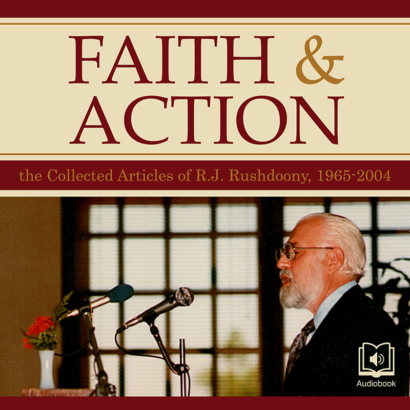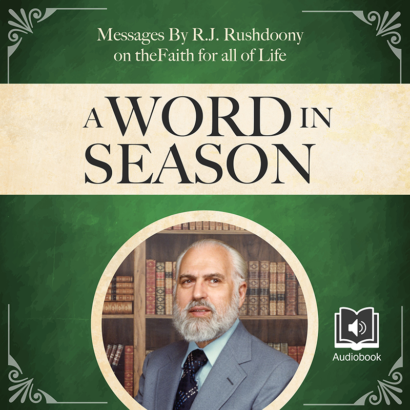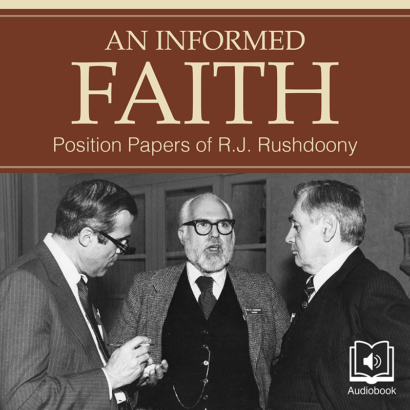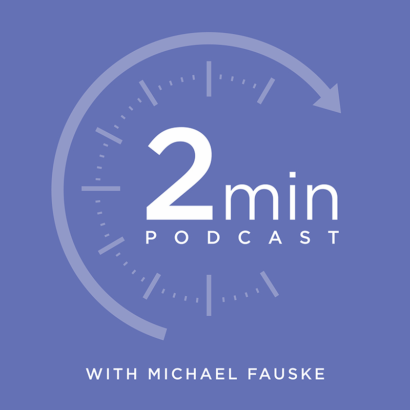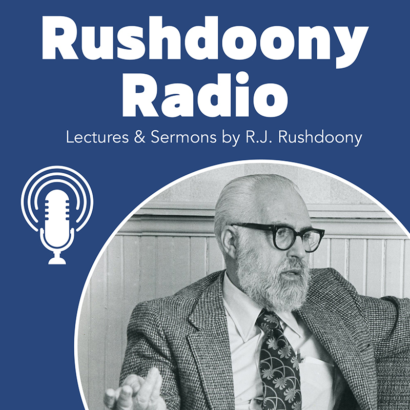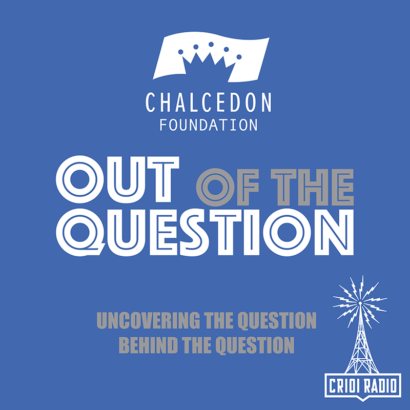
P is for Pyramids
• Jun, 26 2024
In this episode of "Preschool Pioneers," host Jeremy Walker explores the theme "P is for Pyramids," contrasting the futile human endeavor to build monuments for self-glorification with the enduring value of building God's kingdom. Walker uses historical and biblical examples to illustrate how human achievements, like the Tower of Babel and Nebuchadnezzar's statue, ultimately fade away, whereas contributions to God's kingdom have eternal significance. He emphasizes the role of Christian parents and teachers in guiding children to become kingdom builders, instilling values of obedience, self-denial, and service to others. This episode encourages listeners to focus on lasting spiritual legacies over temporary earthly accomplishments.
Hosted by
Husband, Father, Pastor, Teacher, Podcaster, and Christian Education Advocate
- Series: Preschool Pioneers
- Topics:
Jeremy Walker (00:14):
And welcome back to another episode of Preschool Pioneers. I am your host, Jeremy Walker. You can follow us on our parent network, CR101Radio, on social media such as Facebook, Twitter, Gab, and YouTube. You can subscribe to this podcast on your preferred platform so you never miss an episode. Visit cr101radio.com for these links.
(00:42):
Welcome back, everybody, to Preschool Pioneers. This episode is entitled P is for Pyramids, the futile and desperate attempt of humanism to create wonders that glorify man, and enthroned his memory forever, and why they will always fail. Well, on Preschool Pioneers, we always like to start with a question why Christians should become teachers. This is very important because the world is in need of Christians. It is in need of a Christian influence all around the globe, and there's a lot we can do to influence our local communities and abroad, but it all starts with our foundation and what we want to build for the future.
(01:33):
There's a question I'd like to ask before we go ahead and get started. Do we want our children to be monument builders or kingdom builders? We're going to explain this a little bit and go over the discussion about what is the difference between building monuments and building a kingdom. So, let's go ahead and start with our passage in Psalms 1:1-6, "Blessed is the man that walketh not in the council of the ungodly, nor standeth in the way of sinners, nor sitteth in the seat of the scornful, but his delight is in the law of the Lord, and in his law doth he meditate day and night. And he shall be like a tree planted by the rivers of water that bringeth forth his fruit in his season. His leaf also shall not wither, and whatsoever he doeth shall prosper. The ungodly are not so, but are like the chaff which the wind driveth away. Therefore, the ungodly shall not stand in the judgment, nor sinners in the congregation of the righteous, for the Lord knoweth the way of the righteous, but the way of the ungodly shall perish."
(02:47):
Now to the question, do we want monument builders or kingdom builders? Well, let me start by explaining the difference. Man has always from the beginning of time, from the very Garden of Eden to the flood to the Tower of Babel itself wanted to be independent of God, and to celebrate himself. One way they do that is by building monuments, something that will show their glory. To list a few off the top of my head that are from the Bible, and we're going to describe some that are more modern day, but some of the beginning ones, the biggest would be the Tower of Babel, where they wanted to build the city of man, a kingdom of man governed by man for the glory of man, something that would stand the generations, something that even though men were going to get old and die, they would not be forgotten nor their work.
(03:48):
They wanted to enshrine their memory on the world forever. The Tower of Babel was one of these primary things. They wanted to build a tower that reached up into the heavens. Another one would be we had the case of Nebuchadnezzar. That's another big one, where he built a big giant statue of himself, one that was supposed to stand for him, the big giant golden statue of the king, and of course the famous scene with Shadrach, Meshach and Abednego, where they were supposed to bow down and pledge undying allegiance to the king and to the kingdom of Nebuchadnezzar. Many other things all throughout history and the Bible were one way of man trying to stay enshrined, trying to leave his mark on the world. Other ones throughout history are what used to be called the seven wonders of the world.
(04:52):
There were some that were more traditional, which are no longer with us, quite a few of them. Then of course, there's the more modern day ones, which you can see and go to yourself. The traditional ones are more like... These are still with us, some of them, the great pyramids of Giza. These are the Egyptian pyramids. There was the Colossus of roads, the Lighthouse of Alexandria, the temple of Artemis, the statue of Zeus at Olympia, and in Babylon, the hanging gardens of Babylon. Now, those are some of the traditional ones which when I was growing up, I had heard about those. More modern day ones, of course, you're going to run into things like the Coliseum in Italy, the Petra in Jordan. That's the kind of looks like a city that's built into the side of a mountain. You have also Christ the Redeemer in Brazil. It's that giant statue of what's supposed to be Jesus with His arms outstretched up on a hilltop. Everybody knows this.
(05:48):
The Machu Picchu in Peru, which is that big massive city that's up on a hill in Peru, the Taj Mahal in India, and probably the most well-known is the Great Wall of China. There is no end to the monuments that men will build, and there's nothing wrong with great architecture. In fact, I bemoan the fact that we've lost most of our architecture in the world, and things have become very drab, even unbeautiful in the world, and nothing really showcases that more. I said this recently to some people, and it was surprising to them, kind of laugh, but nothing says bland and unbeautiful more than what Elon Musk has created in the Cybertruck. There is nothing aesthetically pleasing about that at all. It's just an ugly vehicle, but it is not going to last as a seventh wonder of the world, but man is prone to building these monuments.
(06:50):
He wants to be remembered, and what he really wants to be remembered for is his independence from God. This is the main reason the Tower of Babel even took place where God separated mankind, and He would leave off building the city of man. I asked the question at the beginning, "Do we want our children to be monument builders or kingdom builders?" The reason why I ask that question is most of the things that you are going to work on throughout your life, especially if they're physical items, if you're building your personal wealth, if you're going to build your home, you're going to build anything. You're going to work on that antique car, and you're going to restore it.
(07:33):
What's probably going to happen is that you're going to go through all this work to build this massive mausoleum of a home. You can see many of them around the world where they fall into disrepair and just crumble. There are massive, massive malls around the world, even giant hotels and otherwise that are just exquisitely beautiful, but now they're forgotten. They just decay and wither away. All these wonders we talked about like the light tower of Alexandria and more, they don't last, and that's the problem. When man builds something, it's not going to last. It's only going to last a short time. As Christians, it is important for us to try to teach our children what is going to be important. Is it all about you? Are you supposed to build things for you or about your family name perhaps? Are you really that great of a person?
(08:31):
Get your name on a plaque somewhere so that people can remember that you donated money to this charity, or because you put money to help put new seats into the orchestra area of the local opera, or whatever it might be that people do get their names put on something. I recently saw in a high school, there was a memorial gardens to someone. I forgot the guy's name, and that's the point. This person clearly had put money of some sorts into this high school, a local one, and they had built this memorial gardens in his memory. Well, what you can guess is that the high school is not really that old, and the gardens is no longer a garden. It's just all overgrown and dead. You can walk over to it, and it's sealed off and closed, and everything's dead. The benches are in disrepair, and his little plaque is, of course, it's moldy and broken down, rusted. That's about all his memory, whoever this man was, amounted to.
(09:34):
That's also the problem with teaching children to build something that's for themselves, even if it's personal wealth. This is a vanity of sorts. You're going to build something but you don't know what's going to happen. The book of Ecclesiastes is famous for this subject, is explaining to us what happens in the world. You can work very hard, even godly people, and build your wealth, but you don't know what's going to happen tomorrow. I'm reminded of the story of Gideon, famous story of Gideon, the book of Judges. He, of course, with the fleece Gideon's 300 men and his mighty band of heroes and all the rest that went with it. It's a great story. He has lots of children. Upon his death, his youngest son who was sired from not a wife but a concubine, he, of course, hates all the rest of his brothers.
(10:31):
As soon as Gideon dies, he then takes up the sword, sides with the enemies of the nearby area, and he murders all of his brothers. So, all the sons of Gideon are wiped out shortly after his death. These are some of the reasons why I say we want to, as Christian parents and Christian teachers, we want to instill our children, instill into them what it is that is lasting, what it is that will be a memory for them. If you're trying to build something for yourself, renowned, get your name on a plaque somewhere, that's going to rust, and people are going to forget who you are, and they're not going to care. Before too long, even if they erected a statue of you, like General Lee, the southern generals and the southern states had honored them by making statues, and placing them in prominent places, and teaching them in the history books, and considering these men renowned and people to respect, people to revere, people to remember.
(11:36):
Now, look what's happened just recently in America today. People are going around and ripping down monuments and statues, and the people that we were supposed to respect, these are people we're supposed to hate now. They're trying to wipe out the memory of a vast majority of American history. Why? Because in America today, there has been a shift. There is a shift, and that shift has been a religious shift, and has shifted greatly further away from Christianity, and almost fully embraced humanism today. We then need new people to revere, and we need new people to adore. We need new people to remember. This is the danger of teaching our children to either try to have their name remembered, to have their family remembered, or even your cultural icons of sorts, because these things are going to be torn down. They're going to rust. They're going to mold, same as your wealth, same as your home.
(12:38):
These things will not last. It's important as Christian parents and Christian teachers, we get our children to understand what to work on now. The difference between a monument builder and a kingdom builder is a kingdom builder, from the perspective that I'm explaining it, is working on the kingdom of God. That's right. Everything they do is important. Because it's not theirs, because it's something that belongs to God, it is His kingdom. Now, this is something that is not going to pass away. This is something that will not be forgotten. You can go out and build the most beautiful home in the world, but it's going to be forgotten. In the grave, you will not get reward for how wonderful the architecture was, or how long it lasted. But if you are going to build a kingdom of God, a godly marriage, a godly family, many children, godly friends, godly churches, godly businesses, and help many people, now, these types of rewards, these types of works, these things will never be forgotten.
(13:49):
These things will earn an eternal reward. We're told not to lay up in our lifetimes. Things here and now, they're going to get old, get wasted away, be forgotten, but to build those things that will never be forgotten and that will last. Now, that's something that I don't think many parents think about. The concept of building as we started at the beginning of this episode, talking about pyramids and the futile and desperate attempt that humanism or mankind does in creating wonders that glorify him, and enthrone his memory, the funny thing is that even people today are starting to try to claim the exploits of those in the past. Even right now. Take Egyptian history as a good example. Right now, the Egyptian history as I know it was that the Egyptians and using slave labor or otherwise built the pyramids of Giza in Egypt.
(14:51):
But now, there are people right now trying to claim that different racial heritages, and not the Egyptians of the old, but different peoples and different classes of peoples, well, they were the ones responsible for this wonderful work of art, this wonderful thing that lasted the millenias. They are so dead today, the peoples of our modern day, that they are now trying to claim the exploits of things in the past. That right there is a big indicator that you're dealing with a people that are dead, because they're not producing anything now. It's like something that is sterile. It has been destroyed. It can no longer reproduce. It is of no worth. It's impotent. The people of today, the humanism of today cannot create. It cannot create.
(15:43):
At least the humanism of old could create quite a bit, architecture, buildings and all the rest. What do people do now? What are they building now? They're not. They're destroying. Turn on your news. Turn on your TV. They're ripping down and destroying everything. They will say, "Well, we need to get in positions of power." Well, what do they do once they get in there, besides turn into robbers and thieves, and exploit people, and everything they touch just turns to ash, ash? Putting people in charge of cities that have no business, they have no moral value. They have no desire to be of service to anybody else. They're there for the money. They're there to steal. They're there to kill.
(16:26):
They're not there to help or benefit anyone, and therefore, the only thing they do is destroy, but that's not far from what young children do. Young children that have no discipline, do they create anything? No, they don't. They cannot learn. The vast majority of education today is in shambles. They can't learn to read. They can't learn to write. They can't learn to do arithmetic. These are just educational facts. The reason why they can't is because they were never given the moral necessities to do that, self-control being a massive part of that, and an education that says that they're supposed to be able to produce something. An educated person can and does produce. They are productive. People that are not are users, are destroyers, and that's what you're seeing today.
(17:20):
Just turn on your news, and that's what you're seeing, people that do nothing but destroy. Since they can't create, all they do is jump on the bandwagon and say, "Well, we did that. Look at those things in the past. Well, that was us who did that." Well, no, it wasn't. You're lying completely. Everyone knows you're lying. Then so what? What if you are telling the truth? What if everyone got history wrong, and all those exploits of the past were people of your nationality, of your ethnicity, of your whatever it is, your language? So what? What does that have to do with you today? Nothing. What kind of reward is it going to get for you today? None. Are you a productive person? No. If you don't produce, you're dead.
(18:05):
When you can only go to the past, then you have no future. We want our children not to live in the past, but to be future oriented. Our children have to learn how to be self-denying and obedient to God. That's what Christian parents and Christian teachers have to teach our children, because the current spirit of the age is teaching the opposite, being rebellion to everything. Go find yourself. Do whatever that you think is best. Don't let anybody tell you what you are, who you are. You can literally get to recreate yourself in any way that you want. These people are destroying our youth, and they're doing it with a consent of every parent out there, because there's nobody rounding up children, and forcing you to let them indoctrinate your children.
(18:52):
You're willingly letting them do it. As Christians, I hope that's not us. As Christian teachers, our job is to combat all of that by teaching the truth. Self-denial, self-control, and God's standard is what we're supposed to be obeying. That's where the future is at. That's why I started this passage with Psalms 1:1-6, because everyone who breaks God's commandments has no future, no future whatsoever. Only those who obey God have a future. Only those people will have a reward. Only those people who are building the kingdom of God have something that will not be lost. They will earn a name that will last forever. As teachers, we're told in the book of Daniel that those that turn many to righteousness will shine like the stars and the heavens forever.
(19:48):
As Christians, those people who obey God, they're being told to be given a home with God in the kingdom of God, mansions. See, if you spend your time building the kingdom of God, there is something for you now, and something to look forward to that is even more valuable. But if you don't, then you're robbing yourself. You're robbing your children. Our children have to learn that the world operates on a certain structure. Good people are rewarded. Those are people who obey God, and those people deserve reward. People that break God's commandments are not good people. They're bad people, and they deserve to be corrected if they can be, and maybe turn back into people who are obedient, correction.
(20:43):
Then there are evil people. These people are not just people who make mistakes and do things that can be corrected. These are people living in open, deliberate defiance and disobedience to God. These people cannot be helped. As Christian parents and as Christian teachers, it is our duly-appointed job to help every single person we can, teach those that are already wanting to obey God to obey God and how to do it, and earn more reward. Those who are having troubles, and they're rebellious and can be corrected, our job is to correct those people. Then there are those who cannot be corrected. If they're our children, then they have to be cut off from our families. There's nothing you can do to help them as they get older, and they refuse correction.
(21:35):
Then of course, there are students, and if they refuse to be corrected at your schools, if they refuse to listen in the classroom, then they cannot stay there. They must be sent out. They must be separated, expelled, whatever term you want to use, but they can no longer stay in a school that is trying to be dedicated to God, to God's commandments, because the only thing they're going to do is be seditious and destroy everything around them. That includes children in a family, loved ones, friends, and students in a classroom. If we are going to be kingdom builders ourselves, then we are going to have to understand that you help everybody that you can, but you can't help everyone.
(22:20):
Some people, they believe they just really believe they can help everybody than they can, but it's just not the case. It's just not the case. I wish it was different. But being in the world as long as I have, going on 44 years now for myself, having 11 children, having friends, having family gone through churches, gone through people in our school systems, children and families, you want to believe you can help everybody. You want to believe that people want to do good, but not everybody does, but we do get a chance to help people. The vast majority of people, especially when you're talking about young children, we can help. We can benefit, and it is our job to do that, our job to give them the proper perspective on life, how to set them up, and how to teach them to be independent.
(23:21):
You don't want them dependent on you or anyone else. You want them dependent on one thing and one thing only, and that is dependent on God. Teaching children that they are not the center of the universe for everyone, and they should not be the center of their own universe is one of the first jobs we have. This starts at the youngest of ages, but I'd have to say it's probably one of the primary things in the world to teach. That's right. You are not the center of the world. God is. That is the difference between being a monument builder and a kingdom builder. It's our job as Christians to help our children learn how to be kingdom builders. It's not that complicated.
(24:09):
We have the standard of God's commandments. We have our callings if we are parents, and we just have to get up every day. We have to get to work. Be encouraged. You are important if you're a Christian parent. You are important if you're a Christian teacher. You can help children be kingdom builders, and help them earn a reward now and in the future. Well, this has been Jeremy Walker for Preschool Pioneers. Thank you again for joining me, and I'll talk to you again real soon. Thank you and God bless.
More podcasts in series

B is for Behavior
Jun 10, 2025

A is for Apprenticeship
Mar 03, 2025

Z is for Zombieland
Dec 19, 2024

Y is for Your Body, You Choice
Nov 10, 2024

X is for Xenophile and Xenophobe
Oct 21, 2024

W is for Whiteness
Sep 23, 2024

V is for Values
Sep 16, 2024

U is for Uncommon
Sep 07, 2024

T is for Transformers
Aug 26, 2024

S is for S.T.D.
Jul 24, 2024

R is for Raising Rebels
Jul 23, 2024

Q is for Quitting
Jul 22, 2024

O is for Opportunity
Jun 19, 2024

N is for Nationalism
Jun 13, 2024

M is for Mind Magnets
May 19, 2024

L is for Lowering Standards
May 12, 2024

K is for Kool-Aid
Apr 28, 2024

J is for Justified
Apr 15, 2024

I is for Integration
Apr 08, 2024

H is for Homeschooling
Apr 01, 2024

G is for Godly Fathers
Mar 25, 2024

F is for Flat Earth
Mar 18, 2024

E is for Economics and Entrepreneurship
Mar 12, 2024

D is for the Department of Children and Families
Mar 12, 2024

C is for Childbearing
Mar 12, 2024

B is for Bears, Beets, and Battlestar Galactica
Mar 12, 2024

A is for Abandonment
Mar 12, 2024


